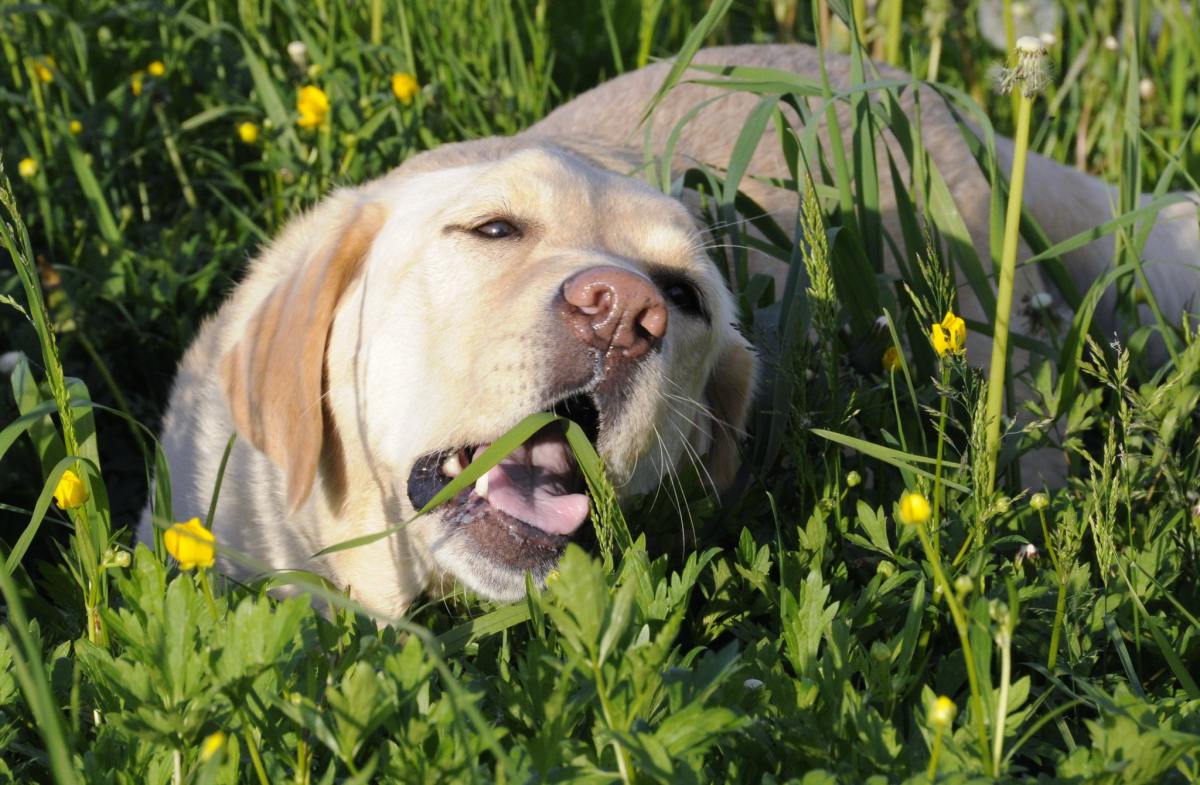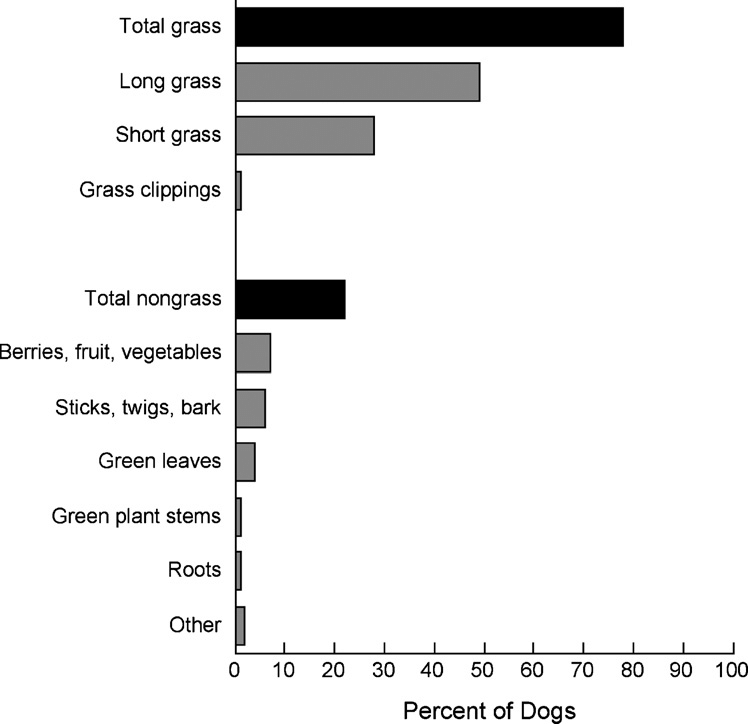
People who own both dogs and lawns often have a question for their veterinarians: “Why do dogs eat grass?”
Grass-eating by dogs is a commonly observed, but rarely studied topic, so there are plenty of opinions. It’s to soothe an upset stomach. It causes them to throw up. It’s to make up for a nutritional deficiency in their dog food. Or dogs just like the taste of grass.
But according to a co-author of the only peer-reviewed study of this dog behavior, those anecdotal observations don’t ring true.
The real answer, says Dr. Benjamin Hart, professor emeritus for the University of California-Davis School of Veterinary Medicine: When a dog eats grass, it’s exhibiting a natural trait that dogs (and cats) inherited from their wild ancestors.
For both dogs and cats, “Eating grass is a type of herbal medicine,” said Hart. “As best as we can put it together, it has to do with the removing internal parasites from the intestines. Even though our domestic dogs and cats don’t know they don’t have worms, they can’t tell. We know they don’t because we’ve treated them, but [by eating grass] they’re doing the same thing as their wolf ancestors.”
Dogs’ Grass-Eating Behavior Survey
He came to the conclusion by conducting a survey of dog owners to see how common grass-munching dogs were. Some 1,571 dog owners who were with their pets at least six hours a day participated in the survey.
Its findings:
- Sixty-eight percent of those surveyed said their dog’s diet included plants daily or weekly.
- Just 8 percent of the pet owners said their dogs frequently show signs of illness before plant eating.
- However, 1 in 5 (22 percent)said their dogs vomit regularly afterward.
- Of the plant-eating dog population, younger dogs ate plants more frequently than did older dogs and were less likely to appear ill beforehand or to vomit afterward.

Cats eat plants, too, but are finicky grass-eaters
What about cats? They eat grass, too, and probably for a similar reason. Preliminary studies indicate they tend to eat more nongrass plants, Hart said.
While dogs and cats do not process plant material for food efficiently, the way horses or goats do, grass-eating has traditionally been part of feline and canine behavior. In one study of wild lynxes and wolves in Latvia and Estonia, they commonly had some plants in their stomachs or their scat — mixed in with their dietary staples of deer, beaver, rodents, birds and an occasional, unfortunate house pet.
When grass-eating is not normal
If your grass-eating dog does throw up its stomach contents regularly, that’s not normal dog behavior. A greater level of pet care is called for to see if a chew toy or something else unwelcome has entered your canine’s intestinal tract.
According to the Purdue University College of Veterinary Medicine, a veterinarian can determine whether your dog has an underlying gastrointestinal disease with a physical exam, fecal exam, and blood tests including a blood count and chemistry panel.
The blood count will determine whether an inflammation or blood loss that could indicate bleeding into the gastrointestinal (GI) tract. The chemistry panel assesses the health and function of body systems. Your vet will guide you to proper treatment if your veterinarian diagnoses GI disease, proper treatment can be prescribed.
One time when you do not want to allow dog eating grass is if the lawn has recently been treated with fertilizers or pesticides.
Other than that, let your dog eat grass, within reason. When Fido grazes on the green stuff, the dog is merely following a habit its ancestors developed to naturally clear out intestinal parasites. In a sense, it’s a healthy habit, said Hart, who has also studied the dangers of too-early neutering and why hippos yawn.
“Animals get sick a lot less than people,” he said, And where human medicine is resulting in bacteria growing resistant to antibiotics, no such problem exists for animals in the wild. “Animals use herbal medicine that is fairly effective,” he said. “Their bugs don’t become resistant.”
Main Photo Credit: smerikal / Flickr / CC BY-SA 2.0 DEED